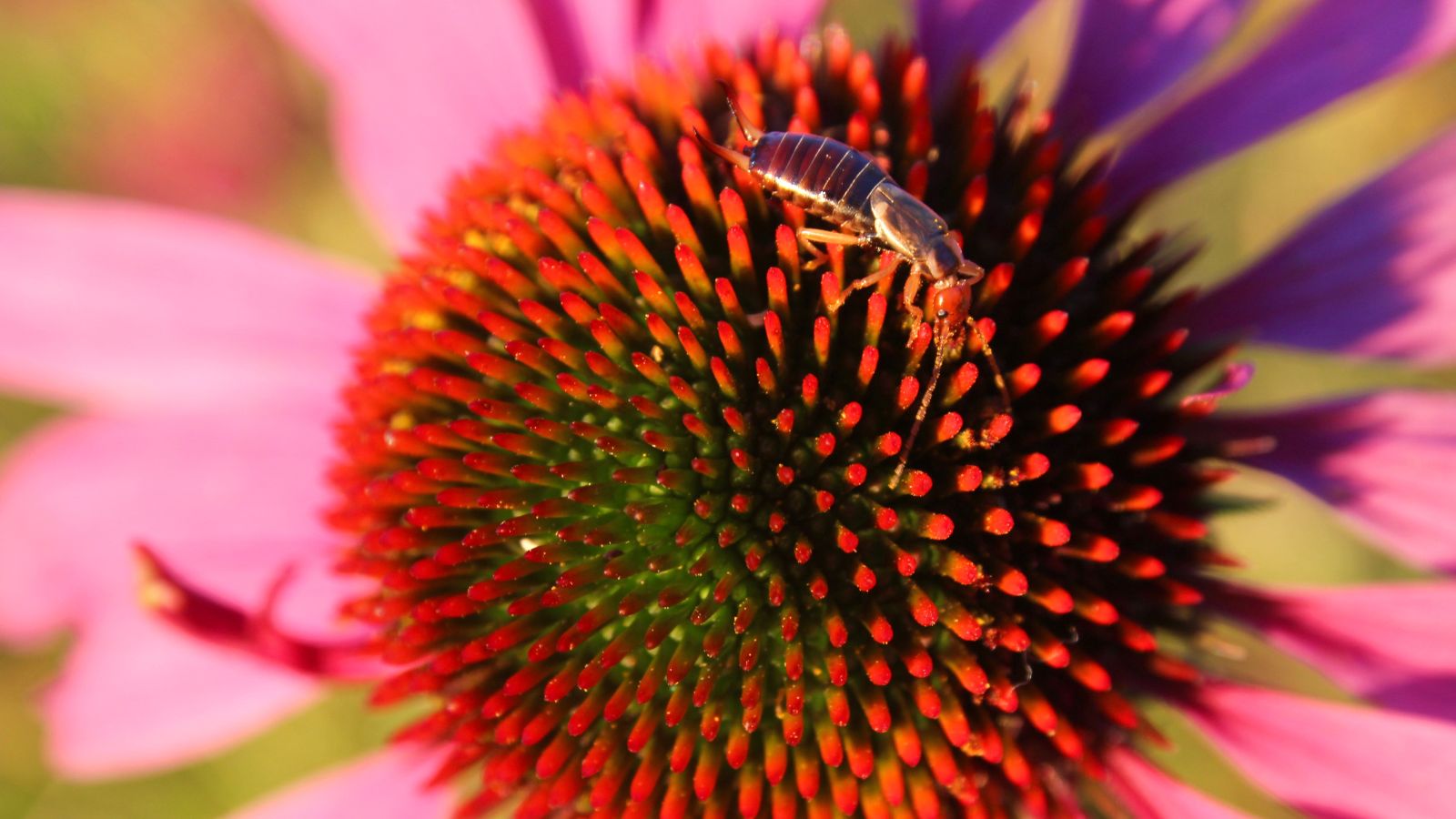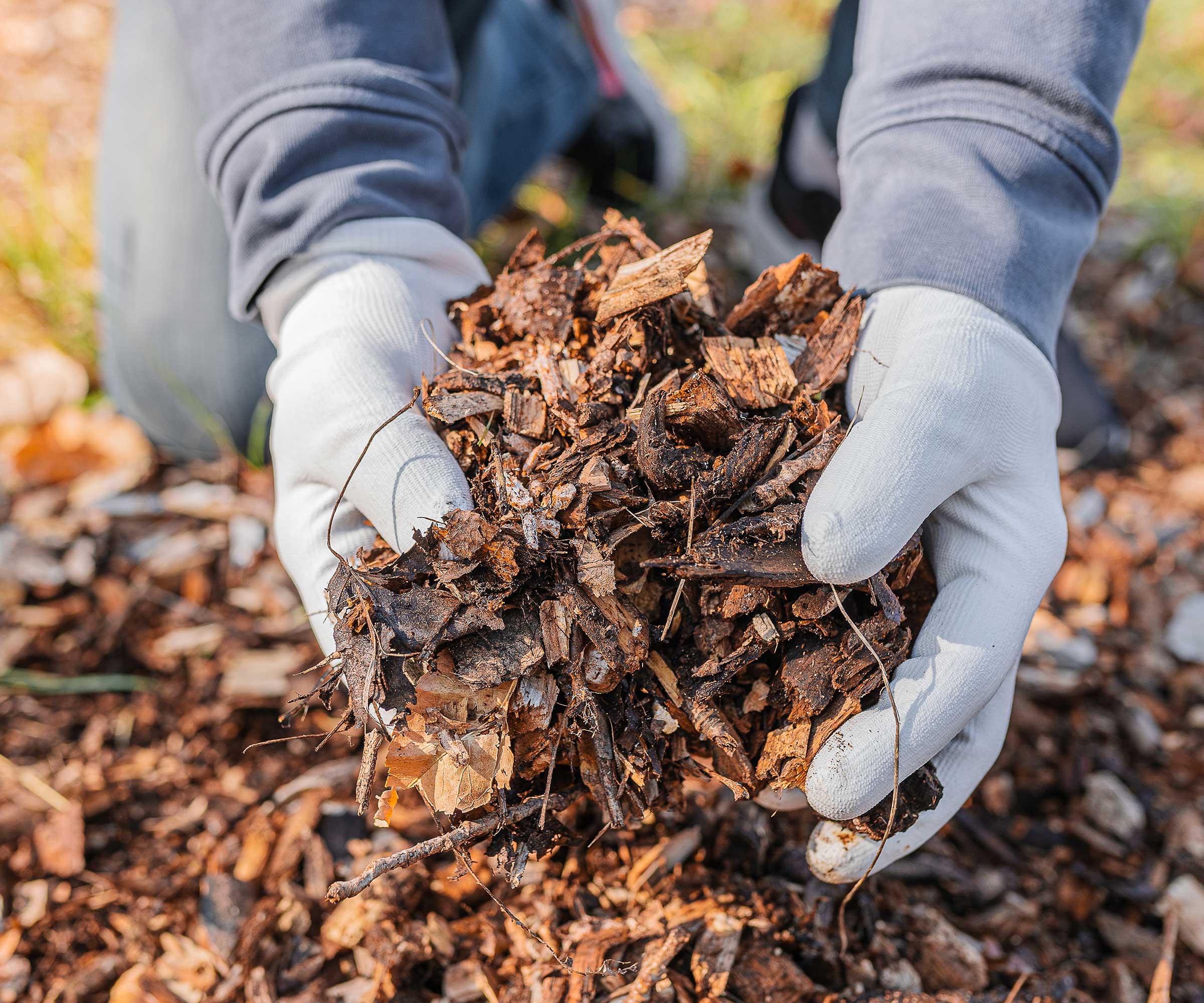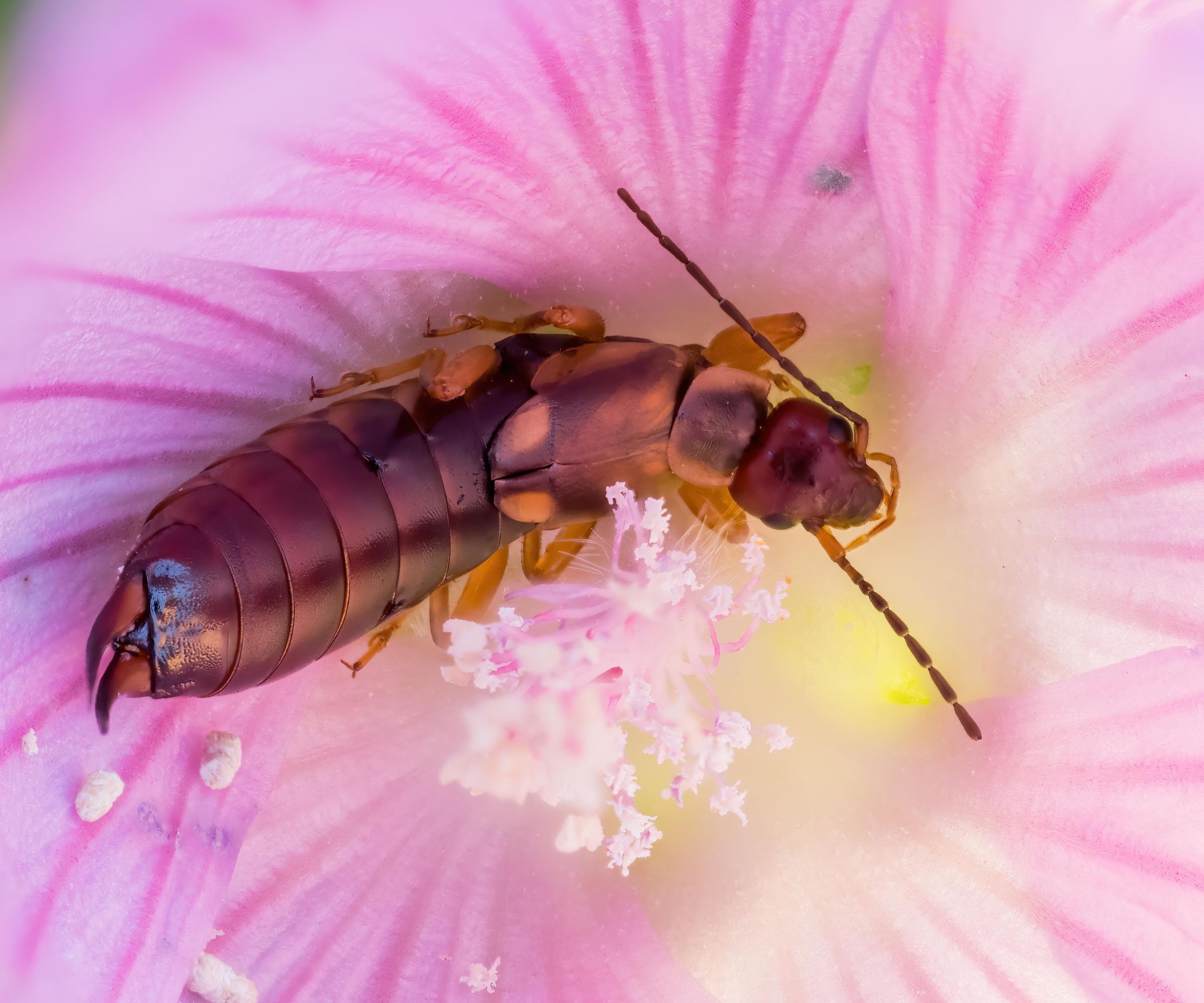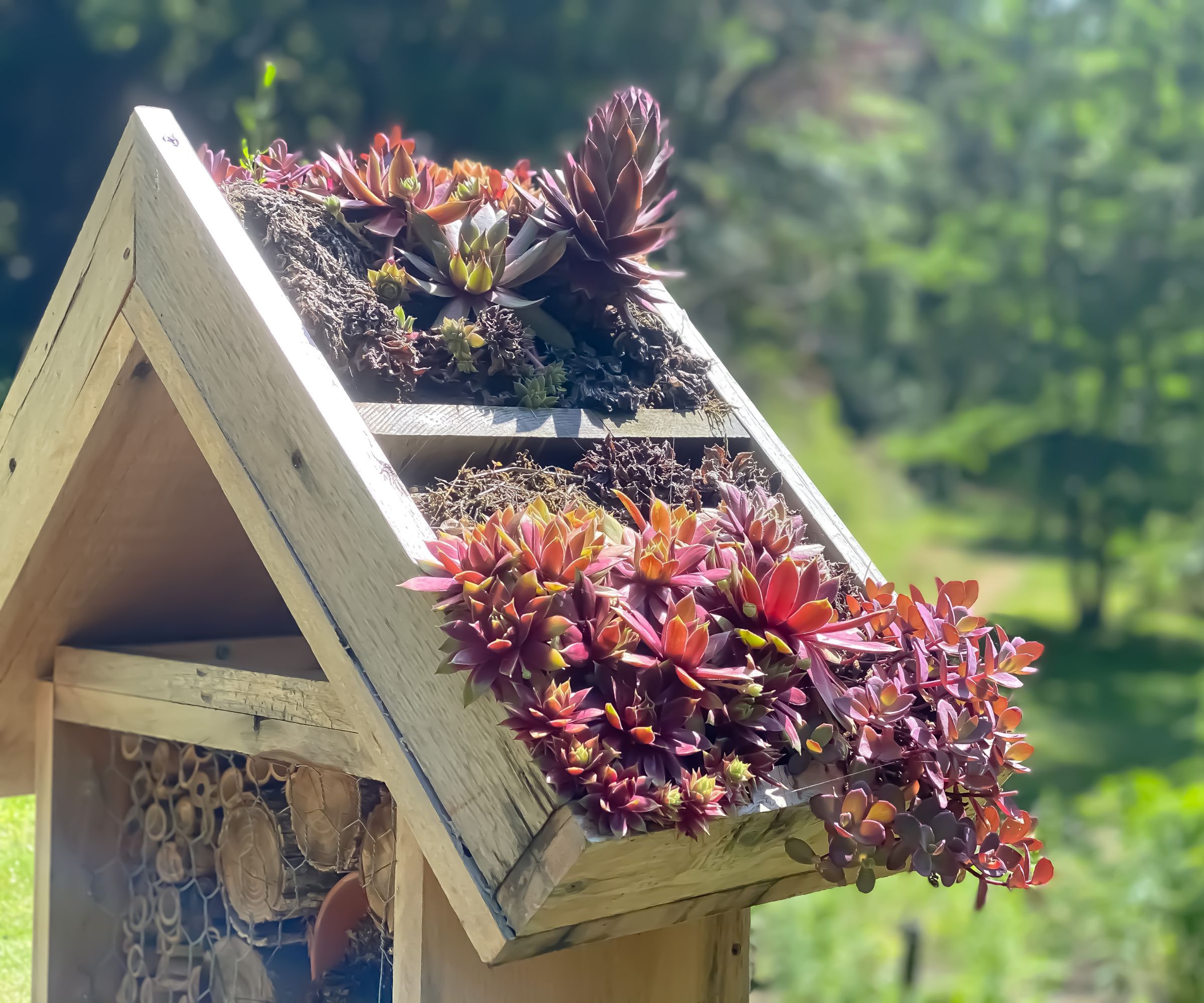
Although earwigs generally prefer the outdoors, extreme heat or cold temperatures can drive them into your home. Since they can get inside by the tiniest of cracks and crevices, if they are drawn to your home, they will quickly multiply.
Earwigs are attracted to dark, damp, and humid environments and feed on organic debris and decaying materials, so they often love our yards and invade our homes. Making your home as inhospitable to earwigs as possible is the best strategy for keeping them out.
The key to keeping them away from your home – saving you the effort of getting rid of earwigs – is removing any attractants nearby, using deterrents to create a perimeter around your home, and offering preferable alternatives.
6 steps to stop earwigs from coming into the house
To prevent earwigs from entering your house, eliminate the dark, moist, hidden spots they love. This involves reducing organic matter around your home and yard, particularly in less frequented and more humid areas like basements. Keeping these areas clean and dry will make your home less appealing to earwigs.
Although they may still find their way inside, an uninviting environment will discourage them from staying and multiplying.
1. Clear organic debris

'Your first step to keeping earwigs out of your home is going to be eliminating any conditions that might be encouraging them – notably, any leaf litter or yard debris you might have around your home,' says Brett Bennett, Director of Operations at PURCOR Pest Solutions. 'Gutters packed with debris can be an enticing way for these bugs to enter your home, too.'
Regularly remove organic matter like wood piles, leaf litter, and mulch from around your home’s perimeter (at least 10 feet away). These materials can be breeding grounds for earwigs. Maintaining a tidy and well-maintained garden can discourage earwigs from congregating near the house.
2. Maintain a dry foundation

Earwigs are attracted to moisture, so keeping the area around your house dry is crucial.
- Ensure that your home’s foundation remains dry by checking for cracks and leaks and sealing them promptly. Fix any leaky faucets, hoses, sprinklers, or rain barrel problems that increase moisture around your home.
- Clean your gutters frequently to prevent blockages that can lead to water overflow and direct downspouts away from your home's foundation.
- Install proper garden drainage solutions, such as French drains, to prevent flooding and waterlogging.
- You can even make landscaping adjustments if water frequently accumulates near your home – make sure the soil around your house slopes away from the foundation.
3. Seal up entry points

To prevent earwigs from entering your home, it's essential to inspect your property for gaps or cracks and seal them up. Earwigs often enter through spaces where foundations meet siding, unscreened attic and foundation vents, and access doors to crawl spaces.
'Many people have loose-fitting or older window screens that might have gaps and holes that allow earwigs and other bugs to enter – switching these out and installing door sweeps under door gaps can help make your home as difficult to enter as possible,' says Brett Bennett. These self-adhesive door sweeps from Amazon come in four colors and are an effective solution for sealing door gaps.
4. Reduce outdoor lighting

Just as your lighting may be attracting mosquitos, it may also be inviting earwigs to your home.
Earwigs are attracted to white lights at night, so consider minimizing outdoor lighting or switching to yellow LED bulbs, which are less attractive to insects. Unlike standard incandescent bulbs, yellow or sodium vapor light bulbs emit a light wavelength that is less visible to these pests and produces less heat, making them less appealing to earwigs.
5. Create a perimiter with natural deterrents

Using a homemade bug spray around the foundation of the house can create a barrier that fortifies your home against earwigs. Some options include:
- 'In a spray bottle, dilute essential oils, such as peppermint, lavender, and citrus (lemon or orange), in water and spritz this around the border of your house, especially at the entrance points like doors and windows,' suggests Matthew Wilson, a gardening expert at Handy Gardeners. 'Earwigs detest these oil scents, keeping them away from places applied with this oil-water mixture.' We like this Essential Oils Set by PURE AROMA from Amazon.
- 'You can also place small bowls of soapy water with soy sauce around the house, especially near the entrance. The earwigs would be attracted by the soy sauce but get trapped by the soapy water, stopping them from going inside.
- A mixture of equal parts soap and water can be sprayed on window sills and under the doors to stop the earwigs from entering the house. The soap breaks down the earwigs' protective outer coating.
6. Create an earwig hotel

'To keep earwigs from invading your living space, consider building an "earwig hotel",' advises Matthew Wilson. Place this hotel somewhere on your property far from your home to provide an attractive alternative to lure earwigs away from your home.
'To make this bug hotel, use rolled-up newspapers and/or bundled-together sticks of bamboo to construct small havens, then put them around the perimeter of your house,' continues Matthew. 'Earwigs will be attracted to the dark, moist hideouts and will stay there instead of coming inside.
This pollinator house and bug condo provides a safe habitat for bees, ladybugs, butterflies and other insects, away from your home.
Periodically, remove these shelters to relocate the earwigs away from your property humanely.
If you have plants on a windowsill and tend to find earwigs entering your home through this space, consider using neem oil on plants. Neem oil is a natural insect repellent and can be applied to your plants to deter earwigs from coming in. Simply dilute it according to the manufacturer's instructions and spray it on the leaves and soil of your plants.







